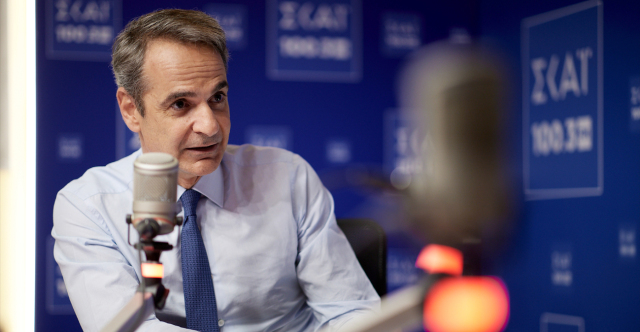Kyriakos Mitsotakis reignited the discussion on increasing job tenure for public sector employees, citing both social readiness and cross-party agreement. In his recent interview with SKAI Radio 100.3, he announced that New Democracy will bring this issue to the table during the forthcoming constitutional revision, specifically targeting amendments to Article 103, paragraph 4.
A pivotal moment in this debate came from a recent MARC poll for Proto Thema, revealing widespread political support for the proposal—even among left-leaning voters, who typically oppose such changes. The survey indicated that nearly two-thirds of public sector employees themselves back this initiative. With societal attitudes evolving and the topic becoming less controversial, the government sees a valuable chance to steer public conversation and set the agenda.
During his 2023 election campaign, Mitsotakis had already committed to reforming the “deep state,” with public sector tenure identified as one of Greece’s remaining ‘sacred cows.’
This constitutional regulation, established in 1911 during the leadership of Eleftherios Venizelos, comes from a time when Klafthmonos Square (meaning “Square of Lament”) was named in 1878 as a site of protest by public servants following mass dismissals by a new government.
“Tenure should not be a catalyst for inertia. Yet, it may be doing just that today,”
Mitsotakis remarked yesterday, emphasizing that the government has already rolled out initiatives such as productivity bonuses for managerial positions and AI-assisted performance evaluations.
Interior Minister Theodoros Livanios is also set to introduce a new Disciplinary Framework for the public sector. However, the government contends that without the theoretical possibility of dismissal for employees who consistently underperform—especially given the current scale of the public sector—the evaluations may lack significance.
The 180 Votes and PASOK’s Position
The formal debate is expected to commence once the process begins to identify which constitutional articles will be revised—likely at the end of 2025, with the full procedure expected to unfold in 2026. A minimum of 180 votes will be necessary to declare an article revisable. If that threshold is met, only 151 votes will be needed in the following Parliament to amend it. Otherwise, a 3/5 supermajority will be required for any amendment vote.
PASOK has largely sidestepped engaging with the issue meaningfully. Party leader Nikos Androulakis dismissed the Prime Minister’s remarks as political “fireworks,” while spokesperson Kostas Tsoukalas stated that “tenure is not the problem of the public sector.” However, it’s noteworthy that the broader discussion gained momentum recently after former PASOK minister Kostas Skandalidis brought the topic up more explicitly.
Ask me anything
Explore related questions

















